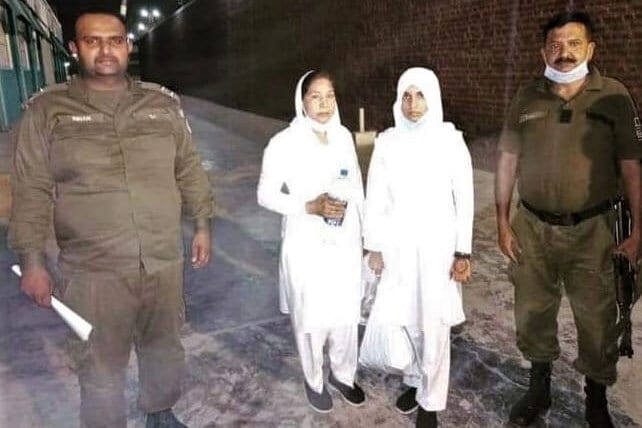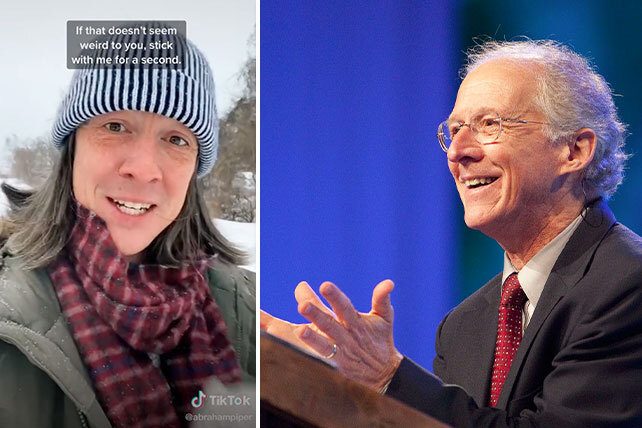Committing not to have sex before marriage is not the same as purity culture, says author and pastor Dr. Timothy Keller. While abstinence campaigns were a significant part of the purity movement, the requirement not to have sex outside of marriage has long been a part of the historic Christian faith.
“Some say that ‘sexual abstinence outside of marriage’ is identical to ‘purity culture,’” wrote Keller in a Facebook post Thursday. “This is simply not the case. The early church’s revolutionary sex ethic was that sex was only for within a mutual, whole-self-giving, super-consensual life-long covenant.” He continued:
This ethic replaced the (wrong) Greco-Roman model of sexuality—that men of higher status, even if married, were allowed to demand sex with anyone of lower social status. The first laws vs rape & sex without consent grew from this Christian ethic…Since then, every branch of the Christian church-orthodox, Catholic, & Protestant—in every culture and in every century has taught the ethic of sexual abstinence outside of marriage.
Abstinence Is Part of Historic Christianity
“Purity culture” generally refers to an evangelical movement that took place in the 1990s and which, among other ideas, emphasized not having sex before marriage and promoted courtship over dating. Said Keller, “The teaching went far beyond the Christian sex ethic to argue that you should not ‘date’ or even kiss someone unless you were sure you were going to marry them. Sexual thoughts, most physical contact, and sex outside marriage were elevated to ‘unforgivable sins.’”
Joshua Harris’s book, “I Kissed Dating Goodbye,” is one of the most well-known books from that time period. Prior to announcing that he no longer believes in Christianity in July 2019, Harris decided to stop publication of his book, and he created a documentary exploring the flaws people saw in it. Among the critiques people leveled at “I Kissed Dating Goodbye” (as well as the broader purity movement) is that it leaned toward a fear-based approach to sex and romance and promoted the idea that marriage is better than singleness. It also encouraged the belief that if people wait until marriage to have sex, then once they are married, they will have great sex and a wonderful marriage—which is a version of the prosperity gospel.
Purity culture was a reaction to the sexual promiscuity of the previous decades, and it is not that the movement’s ideas were all bad, as this author points out. Groups like True Love Waits, which encouraged young people to sign abstinence pledges, wanted to help people see sex as something precious. Part of the problem was that the purity movement reduced purity, which begins in the heart, to mere virginity. “Those who are angry at the abuses of purity culture are right to be so,” said Keller, “It has done harm and it should be called out and lamented.”
Because abstinence campaigns were a part of the purity movement, it is not hard to see how some, in rejecting purity culture, could come to see all abstinence as negative. This, Keller stressed, is a mistake. He said,
Sex is not for people who only give only a part of themselves (the physical, or maybe the emotional), but the whole self to the other—legally, economically, socially, emotionally, spiritually. The Greek word porneia (‘sexual immorality’) was infused with new meaning by New Testament writers. It meant any sex outside of marriage. It was based on a radical egalitarian principle that the husband’s body belonged to the wife, and the wife’s to the husband (1 Cor 7:4). That meant that anyone who within marriage exploited or abused was violating the Christian sex ethic just as much or more as those who had sex outside of marriage.
Keller also pointed out that the purity movement happened quite recently in comparison to what the church has taught throughout its history. He concluded, “to say sexual abstinence outside of marriage is automatically ‘purity culture’ is at best historically naïve and uninformed and at worst deliberately dishonest. They are not the same.”
















